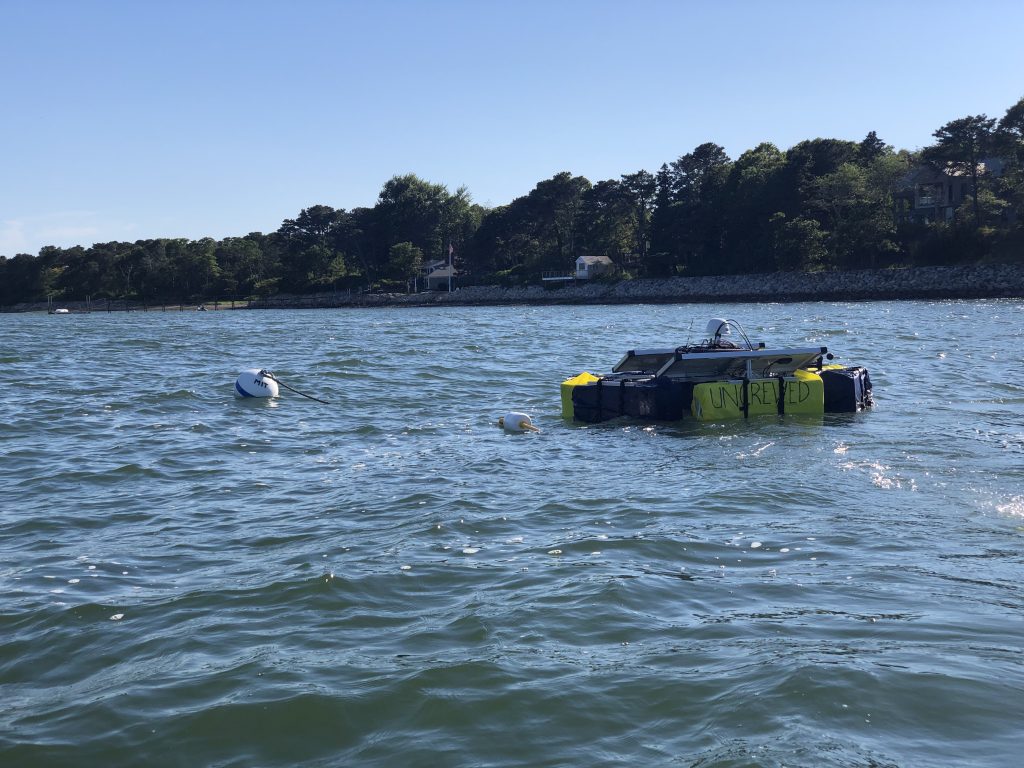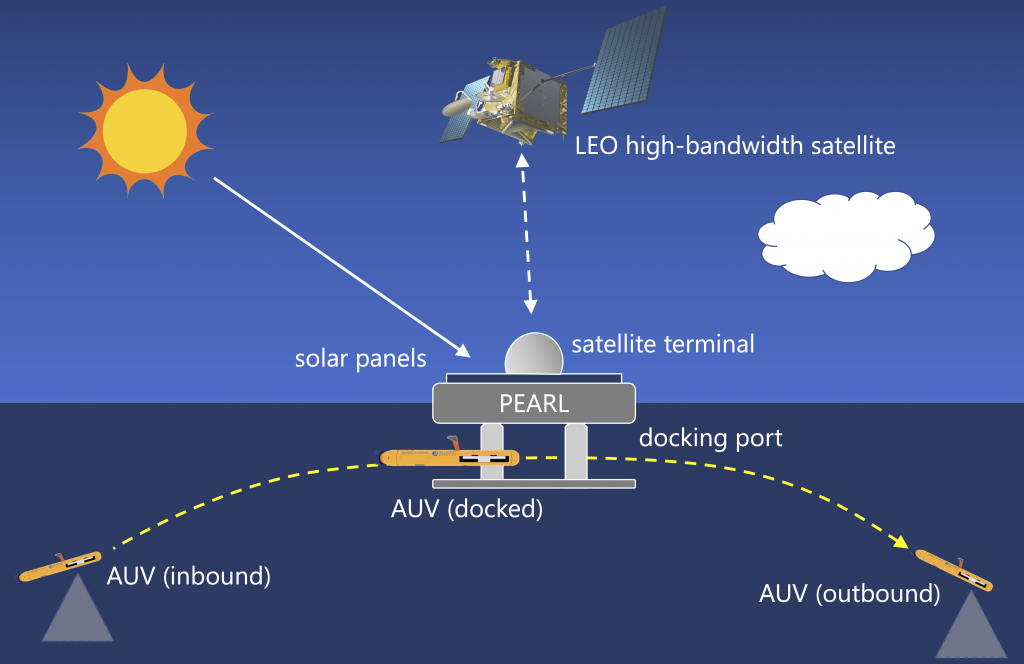
PEARL is being developed in the Engineering Systems Laboratory in the Department of Aeronautics and Astronautics at the Massachusetts Institute of Technology and the Symbiotic Engineering and Analysis Lab in the Sibley School of Mechanical and Aerospace Engineering at Cornell University. The project is being led by Prof. Olivier de Weck and Prof. Maha Haji, with the assistance of a number of graduate and undergraduate students. Special thanks to Dan Wiese for the development of the visualization of the real-time environmental data from PEARL. PEARL has also been featured the Cape Cod Chronicle a number of times recently: January 2021 and April 2021.
In the design of PEARL, the team was very careful to ensure the platform did not harm the local environment. Originally, PEARL was deployed in Deep Pond from October 17, 2020 until April 15, 2021. Deep Pond is a freshwater pond in Orleans, MA. Such freshwater ponds and lakes are vital habitat for ducks, geese, turtles, muskrats, otters and hundreds of other species. PEARL currently resides in Pleasant Bay at Pleasant Bay Community Boating, a community center offering boating, marine education, and environmental stewardship opportunities to residents and visitors to the Pleasant Bay region.
To minimize any impact to the environment, PEARL harnesses sustainable solar energy with marine-grade solar panels. Additionally, all components on PEARL are off-the-shelf items already used in the marine setting, such as for canoes and kayaks. Visit the Orleans Pond Coalition to learn more about protecting and enhancing the saltwater estuaries and freshwater ponds and lakes of Orleans!
A larger-scale system of PEARL will serve as a floating servicing station for Autonomous Underwater Vehicles (AUVs). AUVs offer the ability to provide persistent and expanded ocean observations and measurements. The battery capacity of AUVs, however, currently limits the range and duration of missions. At the same time, sensor payload and ocean measurement resolution are limited by data storage space onboard AUVs. These limitations require that AUVs be frequently recovered to recharge and offload data, a process that often requires the assistance of a support vessel and crew and can cost in excess of $30,000 per day. A future, full-scale PEARL aims to extend the range and endurance of AUVs (e.g. from 8 hours to 240 hours), while reducing data latency and operating costs. PEARL will be an integrated autonomous floating docking station which simultaneously provides AUV battery recharging and data uplink via the new generation of high-bandwidth low-Earth orbit (LEO) constellations (Starlink). PEARL can ensure worldwide connectivity and control of AUVs, allowing for near-real-time underwater data from across the globe. By utilizing solar power paired with integrated battery modules, PEARL can harvest power during daytime hours, allowing reliable, on-demand recharging of vehicles and data transfer, effectively extending AUV endurance and return.

Key Publications
- MN Haji, J Norheim, OL de Weck, A Framework for the Design of Renewably Powered Offshore AUV Servicing Platforms, Ocean Sciences Meeting, San Diego, CA, Feb 16-22, 2020
- MN Haji, J Tran, J Norheim, OL de Weck, Design and Testing of AUV Docking Modules for a Renewably Powered Offshore AUV Servicing Platform, 39th International Conference on Ocean, Offshore & Arctic Engineering 2020, Virtual, August 3-7, 2020.